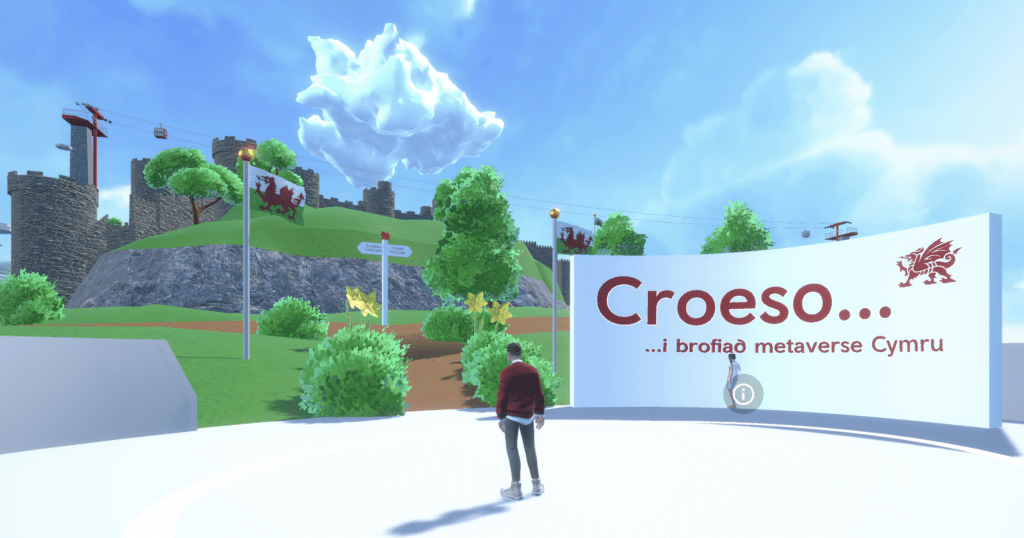While the buzz surrounding the metaverse has definitely died down, some big brands are still rolling out exciting new virtual worlds.
Back in October 2021, Mark Zuckerberg made a huge announcement: Facebook was going to rebrand as Meta.
This was driven by his vision that the metaverse represented the tech giant’s future — virtual worlds where people would work and play.
But it’s been a turbulent journey for the social network, which also owns Instagram and WhatsApp. Billions upon billions of dollars have been poured into building its metaverse, with little to show for it. That aggressive investment continues. Reality Labs, the division of Meta responsible for bringing this technology to life, lost $3.8 billion in the first quarter of this year — and there’s been a much greater focus on artificial intelligence.
Countless other companies have also made big bets on the metaverse, with mixed success. Disney was especially bullish, with ex-CEO Bob Chapek declaring it to be “the next great storytelling frontier.” But last year, the entire department tasked with making this happen was abruptly shut down in a brutal round of layoffs.
The House of Mouse doesn’t appear to have given up on this dream entirely. Back in February, Disney invested $1.5 billion in Epic Games in a bid to create a “new persistent universe.” Tellingly, the word “metaverse” didn’t appear once in the press release.
You could argue that buzz surrounding virtual worlds has been overshadowed by the rise of AI. But reports of the metaverse’s death have been hugely exaggerated, and pretty big projects continue to be announced on a regular basis.
McMetaverse
Earlier this month, McDonald’s Singapore unveiled a brand-new virtual world called My Happy Place, found directly within the fast food giant’s app. Users have been promised a chance to win “exclusive prices and merchandise” — as well as a year of free meals. Some of the games on offer invite players to build a burger or design their dream restaurant.
There are also perks for the lucky owners of NFTs based on McDonald’s famous purple character Grimace, which was released last year. Why? Because they’ll be able to unlock special wearables available to no one else.
IKEA
Later in June, the Swedish home furniture retailer IKEA is also launching a virtual universe on Roblox which has been heralded as “the brand’s first foray into mainstream gaming.”
The Co-Worker Game will allow players to experience what it’s like to work at IKEA, and move across departments. Levels have been inspired by the real-life roles performed by staff — and include rearranging showrooms and serving up meatballs. In a surreal twist, a small number of gamers will also be paid £13.15 an hour for getting involved… equivalent to the living wage paid to workers in London.
Some of the questions on the application form are surreal to say the least, including how you would feel if you were turned into pixels — and what you would do if the store ran out of pixelated hot dogs in the bistro.
IKEA has said its goal is to “attract a new generation of co-workers” and show that there are ample opportunities for career progression within its business.

Wales in the metaverse
Skeptics dismissing virtual worlds as a fad have also been proven wrong by the government of Wales in the United Kingdom, which has become the first European country to establish a presence in the metaverse. Hosted on Spatial and created by the national tourism board, it’s hoped the platform will offer visitors a taster of the destinations and attractions available if they decide to come in real life.
Players can roam around a historic castle to look for a hidden map, take a cable car ride from one side of the metaverse to the other, and admire an amphitheater where authentic Welsh music is performed. Crucially, you don’t need a VR headset to get involved, as it’s also available on smartphones, tablets, and laptops. Tourism minister Hannah Blythyn said:
“The Wales metaverse has been created to reach new audiences — wherever they may be in the world — and inspire them to visit our awesome nation for real. By showcasing some of the best Wales has to offer visitors in this incredibly innovative way, we’re putting Wales in an online sphere where millions of people already meet every day.“
Hannah Blythyn
With each of these three projects announced in the past couple of months, it’s clear to see that there’s still a lot of enthusiasm for building in the metaverse. And as virtual reality headsets become cheaper and more efficient, there’s a decent chance that curious consumers will be more enthusiastic about taking the plunge.
This news is republished from another source. You can check the original article here






